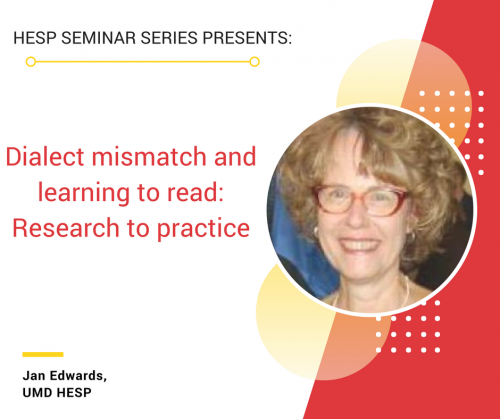Developmental Science Field Committee Talk by Jan Edwards, HESP UMD.
Title: Dialect mismatch and learning to read: Research to practice
Abstract: English-speaking children from low socioeconomic status (SES) families frequently experience dialect mismatch when they enter school; their home dialect of English differs from the Mainstream American English that they hear in school. Recent research suggests that dialect mismatch leads to increased difficulty in learning to read, a claim that has received attention even in the popular press – see the profile of Julie Washington in this month’s Atlantic Monthly. A number of researchers have proposed that the negative impact of dialect mismatch on literacy acquisition can be mitigated by using contrastive analysis to teach children how to code-shift between their home non-mainstream dialect and the mainstream dialect they hear in the classroom. This talk will report on research suggesting that dialect mismatch makes it more difficult for children to understand Mainstream American English and on the first year of a randomized control trial in the Baltimore City public schools. This randomized control trial is designed to assess the efficacy of Toggle Talk, a literacy curriculum supplement designed to help African American English-speaking kindergarten and first grade children learn to code-shift between African American English and Mainstream American English. [Research supported by NIH grant R01-02932 and IES grant R305A170139]



